Marching into history: a photo essay
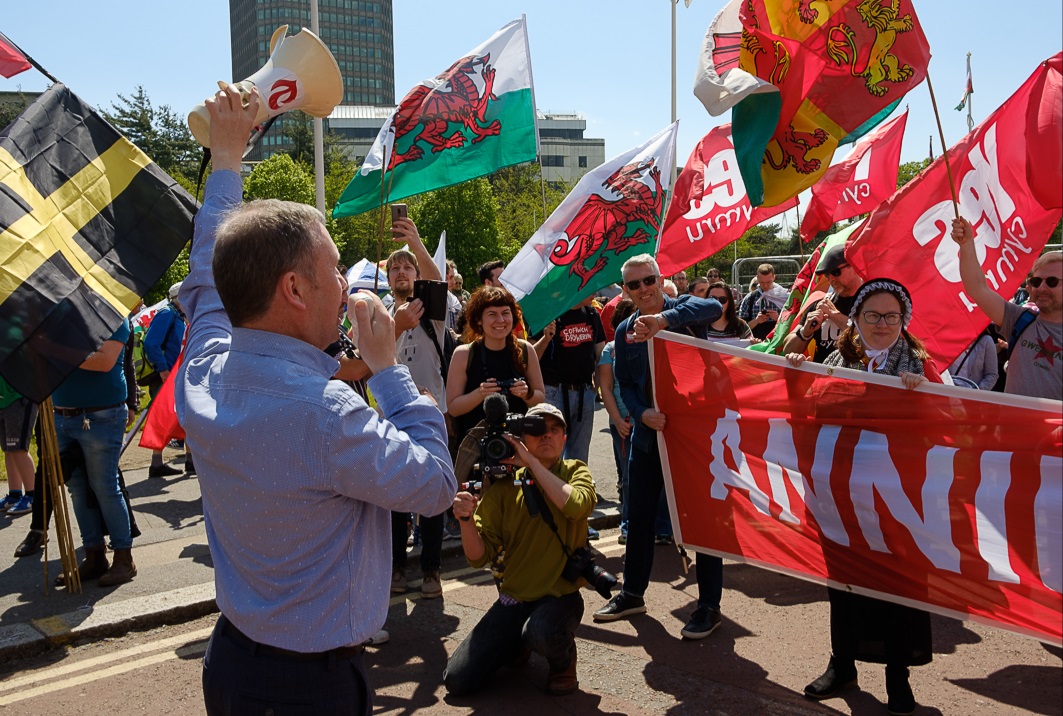
Emyr Jenkins, images
Jon Gower, words
Usually it’s left to the future to decide which moments are historic but luckily we had a historian among the 2,000 marchers for independence in Cardiff. Swansea University’s Martin Johnes though it was “maybe a historic moment in the history of our nation” and that seems good enough for now.
In greeting the marchers who had travelled from all points Yes Cymru chair Siôn Jobbins pointed out that everyone had crossed a river to get here as they coached in from Anglesey, Dolgellau, London and Aberystwyth and so on, crossing the Teifi, the Ystwyth, the Mawddach and the Severn on their way to crossing what he described as the Rubicon. So I crossed the Canna, which flows underground through Pontcanna and then the Taf but also took my own river. My ten-year-old daughter Onwy was at my side and she is named after a small stream that runs fierce in winter as it flows to join the river Clettwr near Talgarreg.
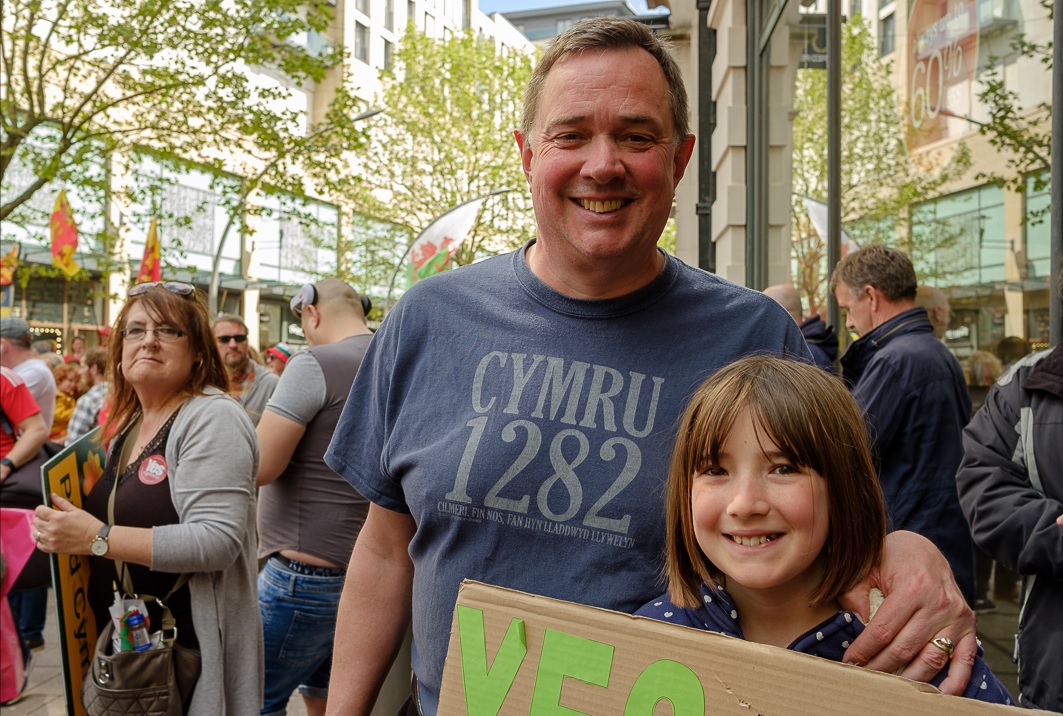
Indeed the whole event was a confluence, the brainchild of All Under One Banner Cymru’s Llywelyn ap Gwilym, who took his cue from the Scottish independence pressure group formed in 2014 which similarly took people away from social media and onto the streets to make their message heard. It brought together a panoply of small but burgeoning grassroots organisations and had inclusivity as a watchword. So Sandra Clubb of Undod shared with us her vision of a feminist republic which banished all patriarchy while Ben Gwalchmai argued, in the face of good spirited heckling, for the clear need to bring more Labour supporters into the fold, as well as underlining the fact that many already are in favour of Welsh independence.
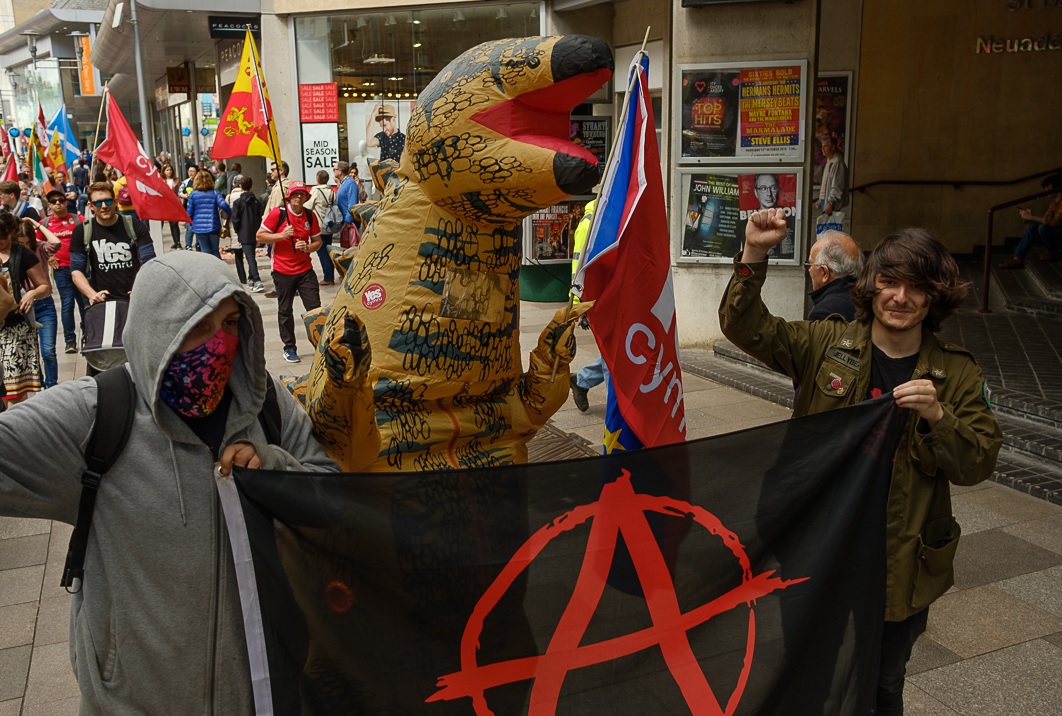
Even if, like President Trump’s inauguration crowd, there is debate about the actual numbers in attendance there was one incontrovertible fact about the Cardiff procession. The bulk of the marchers was young – and had the pulsing energy and optimism of youth. If this alone is fully harnessed one can easily see how such a march can feed political momentum, much as the thousands of Catalans who thronged the streets of Barcelona for La Diada, their National Day which over time swelled into tens of thousands and ultimately into millions.
Coincidentally Plaid Cymru leader Adam Price had just returned from Madrid where he met figures from the Catalan independence movement who had been put in prison by Spain for their beliefs, “a stain on democracy” as Price put it. Even in gaol his counterparts shared their desire that they could one day meet as free peoples.
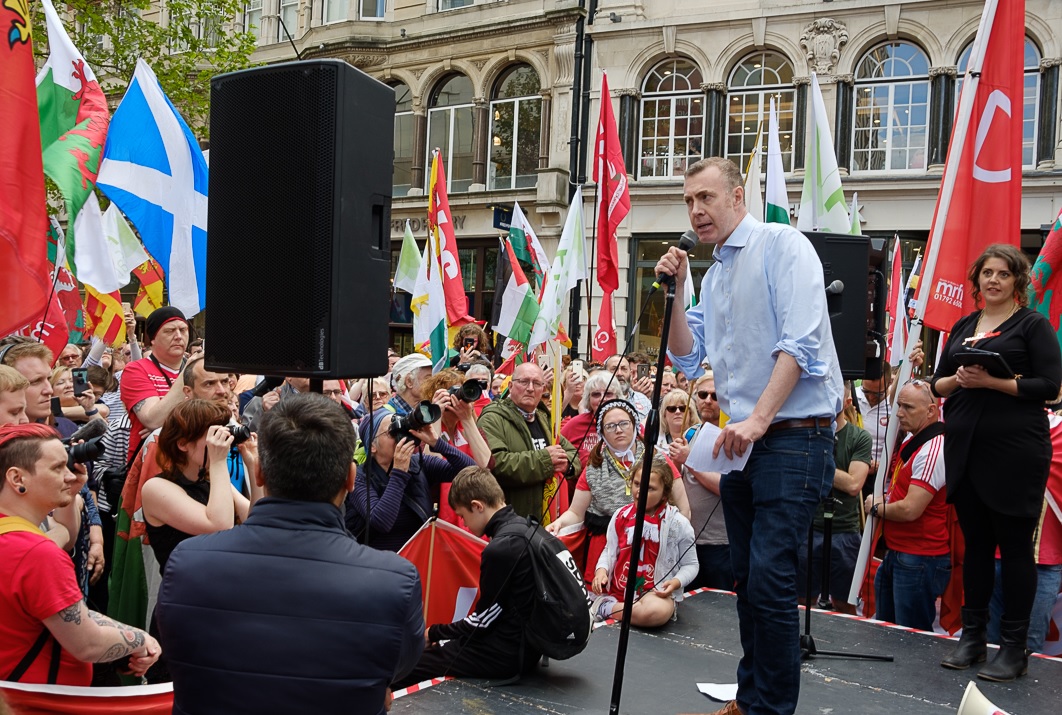
Anyone who has seen, on Youtube, Adam Price’s speech at Harvard Yard knows how he can rise to the occasion, and yesterday was no exception. Wales, after all, used to be a net exporter of world-class political orators, but the past few years has seen the necessary skills in parlous decline, politicians reduced to mumbling and sloganeering and hollow apparachnik-speak. Not in Price’s case, though. In making the case for Wales’s wealth in energy terms he melded clarity and passion with intelligence, arguing how the country could wipe out the inequities of poverty, visible very clearly in the homeless of Cardiff, who slumped in doorways mere yards away from the speakers’ rostrum.
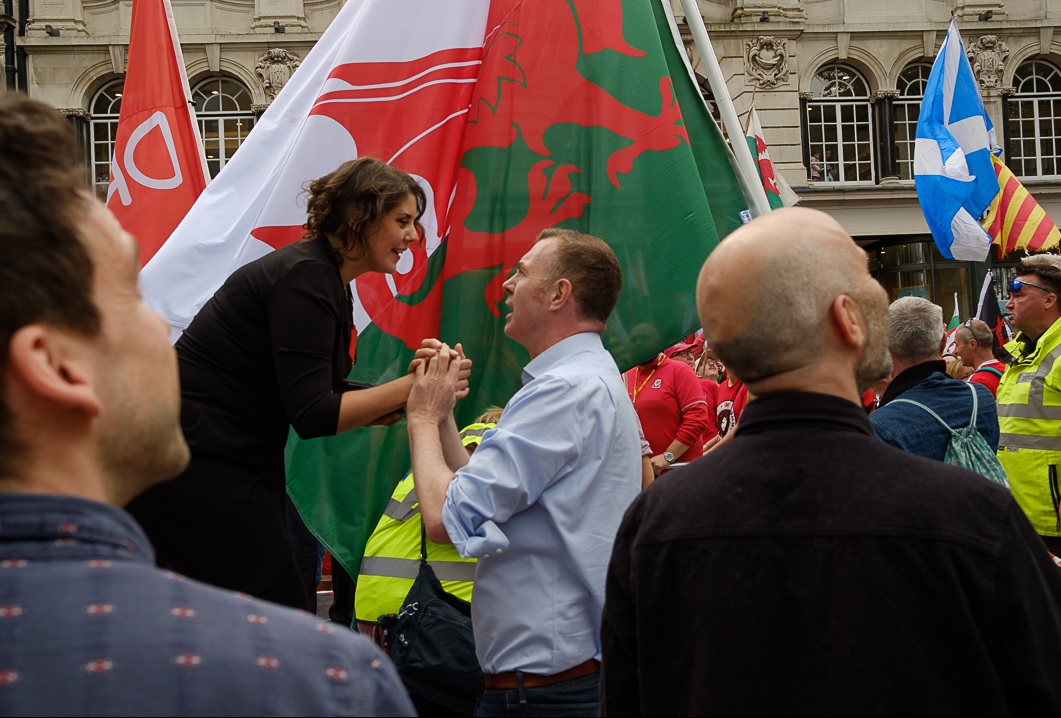
It was, hearteningly, a good-humoured march into history and perhaps the best gag of the day was posted on Twitter by Erin Owain. Citing her highlight of the march, she told of an exchange at the bar of the Owain Glyndwr pub. One friend asked the other ‘Mate, what do you want?’ The friend replied ‘Independence.’
In the face of the pitiful machinations of the Brexit process – if you can call it that – and the deepening attritions of austerity Britain, yesterday’s march and its attendant speeches spoke of hope and ambition and a growing confidence. One sure way of not being downtrodden is to take positive steps oneself to change things and do so confidently. Yesterday was one such step and I, for one, was grateful to join fellow travellers who can see somewhere better in prospect, somewhere now certainly within reach. It deepened my sense that Welshness can be a sort of welcoming family, an antidote to the septic xenophobia seemingly given free rein these past few, Brexit-poisoned years.
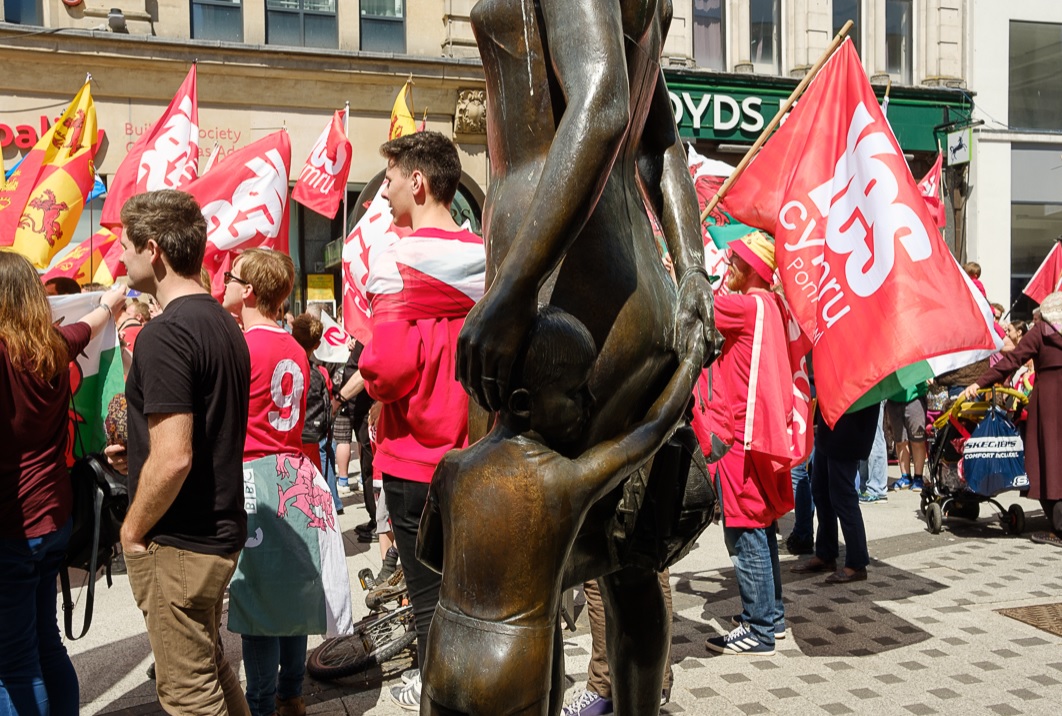
Walking under a fluttering sea of banners alongside Kurds and folk from Anglesey, young men in sharp suits and families out with the prams spoke eloquently about the inclusivity of the day. And with the Barry Horns bringing the rhythms of their football terrace mariachi to the shopping streets of the capital it did feel as if this was a transformative day, when a free Wales could not only be fervently desired but genuinely be created. History is within grasp.
We can’t run Nation.Cymru without your help! If you support the development of an independent Welsh media for the people of Wales, please donate now!
Support our Nation today
For the price of a cup of coffee a month you can help us create an independent, not-for-profit, national news service for the people of Wales, by the people of Wales.





